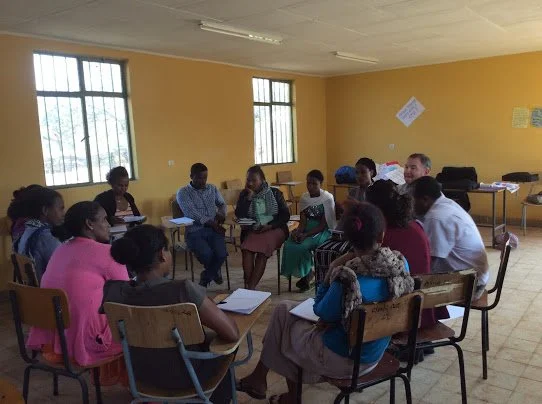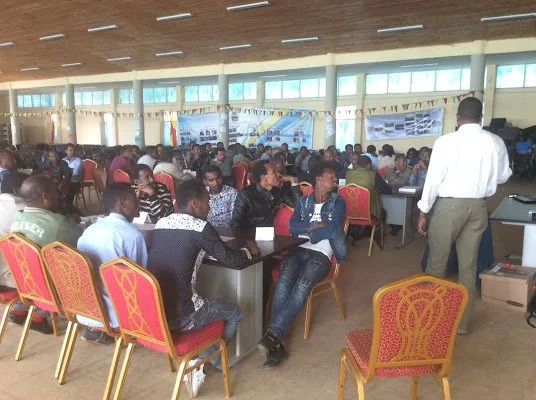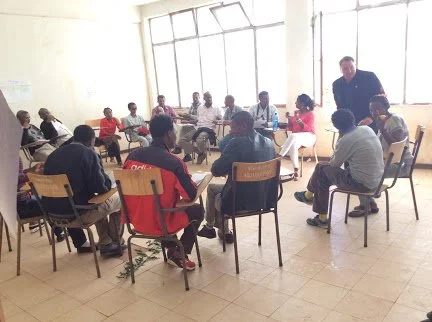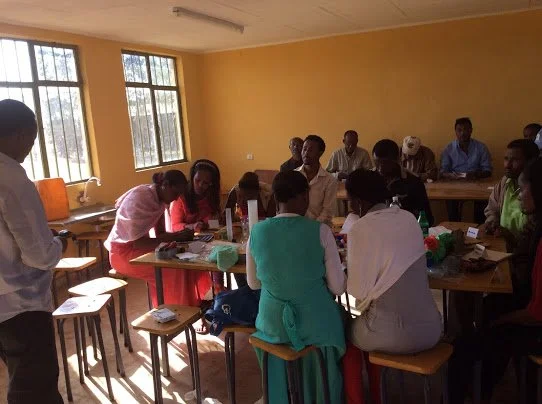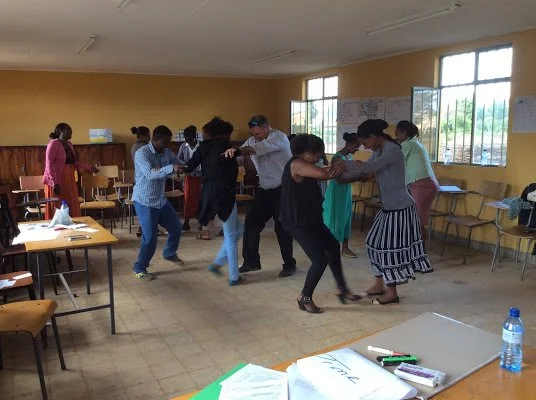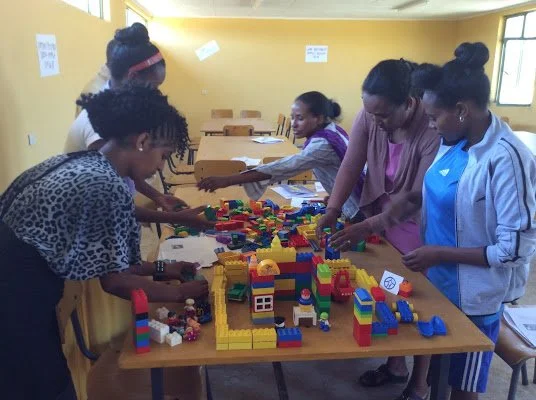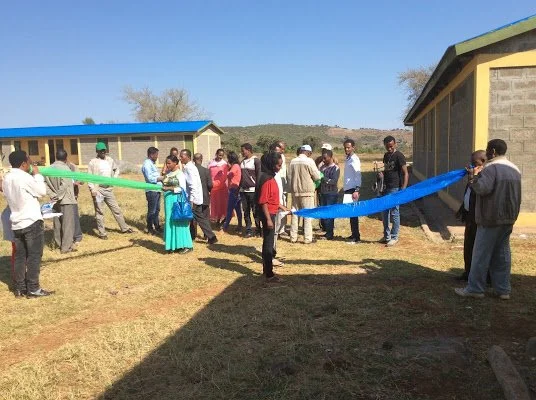
Teacher training and capacity building
We strengthen the quality of instruction, student engagement, and academic achievement through multi-year, in-school, and in-class teacher development programs that focus on long-term impact.
Collaborative, hands-on training
Our education experts conduct regular workshops at all partner schools in collaboration with:
The International Community School (ICS)
The Regional Education Department
Public universities including Bahir Dar, Debre Markos, Debre Tabor, Injibara, Debre Birhan, and Wollo.
These workshops use a student-centred, experiential approach, introducing teachers and principals to new instructional resources, interactive learning methods, and holistic evaluation tools. Outdoor classrooms, play areas, and educational gardens serve as living labs for hands-on learning.
Ongoing mentorship and exchange
Each teacher receives weekly follow-up and mentorship from our experts for three to five years. Selected teachers also travel to ICS in Addis Ababa to observe classroom practices and return to mentor peers in their home schools.
Teachers focused on additional support needs receive targeted training from ICS Special Education professionals.
Our program now extends beyond teachers to include principals, supervisors, and education department officials, ensuring that this model endures long after direct support ends.
Visible transformation in classrooms
Thanks to this long-term investment, we’re seeing significant changes in teaching and learning:
Teachers are adopting learner-centred approaches and objective-based lesson planning
Students are more engaged, active, and participatory in class
Local districts are replicating innovations, such as room-wide chalk paint blackboards, introduced through our program
Two of our partner schools have already been recognized as top-performing schools in their districts for both achievement and teaching quality.
Sustainable support through partnerships
Our partners, especially ICS, continue to provide books, materials, and best-practice exchanges, while Bahir Dar Education Department officials and principals regularly visit our schools to share experiences.

